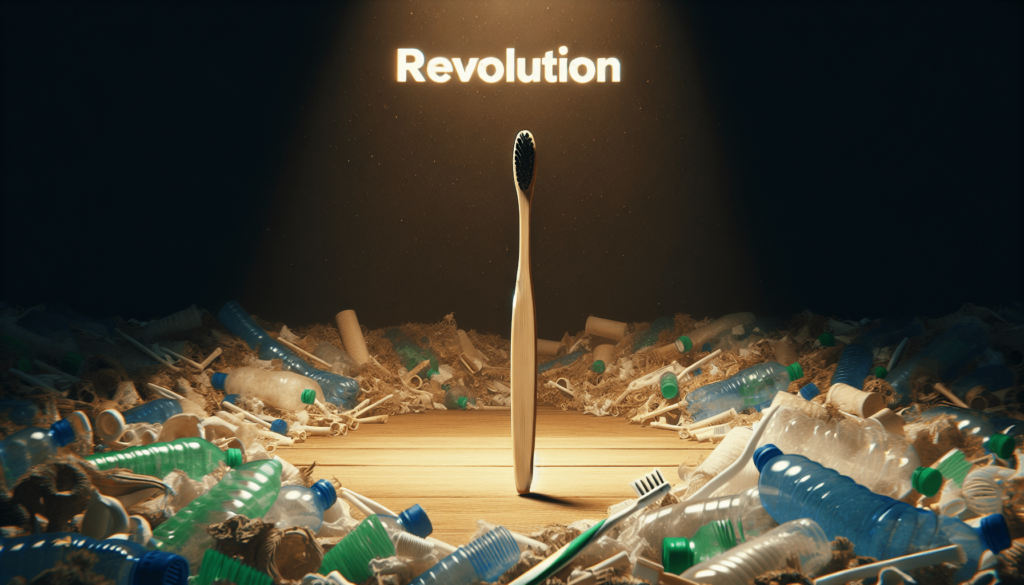In this article, you will discover the numerous advantages of adopting a minimalist lifestyle for the betterment of the environment. By simplifying your life and reducing unnecessary consumption, you can contribute to conserving natural resources, lowering carbon emissions, and minimizing waste. This captivating article will shed light on the positive impact that a minimalist approach can have on the environment and inspire you to make conscious choices that benefit both yourself and the planet. So, let’s explore the benefits of embracing minimalism and discover how small changes can make a big difference.

Reduced Consumption
Living a minimalist lifestyle can have a significant positive impact on the environment. By reducing your consumption of goods and resources, you can lower your energy footprint, decrease waste generation, and reduce the need for resource extraction.
Lower Energy Footprint
When you consume less, you inherently consume less energy. Many products require energy to manufacture, package, and transport. By reducing your consumption, you can lower the demand for such energy-intensive processes, ultimately reducing your energy footprint. This means less reliance on fossil fuels and a decreased contribution to greenhouse gas emissions.
Decreased Waste Generation
Minimalism promotes a shift away from the excessive consumption and disposal of goods. By consciously choosing to only acquire what you truly need and value, you can significantly decrease waste generation. This includes reducing packaging waste and minimizing the number of products that end up in landfills. By embracing minimalism, you can take a step towards a more sustainable and waste-free lifestyle.
Less Resource Extraction
Choosing to live with fewer material possessions means decreasing the demand for the extraction of natural resources. By opting for a simpler life, you can reduce the consumption of non-renewable resources such as minerals, metals, and fossil fuels. This has a positive effect on the environment by decreasing the damage caused by resource extraction activities, such as deforestation and habitat destruction.
Energy Conservation
Minimalism goes hand in hand with energy conservation. By making conscious choices to lower your electricity usage and reduce fossil fuel consumption, you can further minimize your impact on the environment.
Lower Electricity Usage
Minimalists often prioritize energy efficiency in their homes. By eliminating unnecessary appliances and electronics, optimizing insulation, and practicing mindful energy-saving habits, you can significantly lower your electricity usage. This not only reduces your environmental impact but also leads to cost savings on your energy bills.
Reduced Fossil Fuel Consumption
Many products rely on fossil fuels for production and transportation. By reducing your consumption and embracing a minimalist lifestyle, you can contribute to decreased demand for fossil fuels. This helps combat climate change and reduces the negative impacts of fossil fuel extraction, such as air and water pollution.
Sustainable Material Choices
Choosing sustainable materials is another integral aspect of living a minimalist lifestyle. By opting for eco-friendly and recycled materials, as well as reducing the use of non-renewable resources, you can make a positive difference for the environment.
Opting for Eco-Friendly and Recycled Materials
When making purchasing decisions, minimalists often prioritize products made from sustainable materials. By choosing items made from renewable resources or recycled materials, you can reduce the demand for resource-intensive and environmentally harmful production processes. For example, selecting furniture made from reclaimed wood or clothing made from organic cotton can significantly decrease your environmental impact.
Reduced Use of Non-Renewable Resources
Living a minimalist lifestyle inherently involves using less and being mindful of the resources we consume. By consciously reducing the use of non-renewable resources, such as plastic and fossil fuels, you can contribute to a more sustainable future. This can be achieved through choices like using reusable water bottles and shopping bags, as well as opting for products with minimal packaging.

Water Conservation
Conserving water is crucial for sustainable living. By adopting a minimalist lifestyle, you can contribute to decreased water usage and reduced water pollution.
Decreased Water Usage
Minimalists are often mindful of their water consumption. By adopting water-saving practices, such as taking shorter showers, fixing leaky faucets, and using water-efficient appliances, you can reduce water usage in your daily life. Every drop counts, and by practicing water conservation, you can help preserve this precious resource for future generations.
Reduced Water Pollution
Excessive consumption and improper waste disposal can lead to water pollution. By minimizing your consumption of goods and properly disposing of waste, you can reduce the amount of pollutants that enter waterways. This helps protect aquatic ecosystems and ensures the availability of clean, safe water for both humans and wildlife.
Reduced Carbon Emissions
Minimalism can significantly contribute to reducing carbon emissions, a major driver of climate change. By focusing on lowering your transportation carbon footprint and minimizing manufacturing emissions, you can help combat global warming.
Lower Transportation Carbon Footprint
Minimalists often prioritize sustainable transportation options such as walking, cycling, or using public transport. By minimizing the use of private vehicles and embracing alternative modes of transportation, you can reduce your carbon footprint. Additionally, consolidating shopping trips and carpooling can further decrease carbon emissions associated with transportation.
Less Manufacturing Emissions
By consuming fewer goods, you contribute to a reduced demand for manufacturing. Many manufacturing processes result in greenhouse gas emissions, air pollution, and the consumption of non-renewable resources. By embracing minimalism and being intentional about your purchases, you can lower the environmental impact of manufacturing, ultimately leading to a cleaner and more sustainable planet.
Promoting Biodiversity
Minimalism can play a vital role in preserving biodiversity, the variety of life on Earth. By actively supporting the preservation of natural habitats and reducing land clearing for consumption, you can contribute to a healthier ecosystem.
Preserving Natural Habitats
By reducing your consumption and living with less, you can help conserve natural habitats. Land clearing for agriculture, logging, and urban development have severe impacts on biodiversity. By embracing a minimalist lifestyle, you decrease the demand for products that contribute to habitat destruction and send a message that natural habitats must be protected.
Reducing Land Clearing for Consumption
Excessive consumption often leads to the conversion of natural landscapes into agricultural or urban areas. By making deliberate choices to consume less and opt for second-hand or sustainable products, you support the reduction of land clearing. This helps maintain vital ecosystems and protects the habitats of countless species, from plants to animals.
Waste Reduction
One of the fundamental principles of minimalism is reducing waste. By embracing this philosophy, you can contribute to less packaging waste, decreased landfill contributions, and a reduced need for recycling.
Less Packaging Waste
Minimalists often prioritize products with minimal or eco-friendly packaging. By consciously choosing items with less packaging or opting for package-free alternatives, you can reduce the amount of waste that ends up in landfills or contributes to pollution. This also puts pressure on companies to develop more sustainable packaging solutions, driving positive change on a larger scale.
Decreased Landfill Contributions
Minimalism aims to minimize waste generation by only acquiring what is truly necessary. By consciously consuming less and disposing of items responsibly, you can reduce your contribution to landfills. This helps alleviate the strain on waste management systems and encourages the development of more sustainable waste disposal methods, such as recycling and composting.
Reduced Need for Recycling
While recycling is important, reducing the need for it is even more impactful. By adopting a minimalist lifestyle, you can minimize the amount of waste that needs to be recycled. By choosing durable and long-lasting products, repairing instead of replacing, and making conscious purchase decisions, you can significantly decrease the need for recycling and the energy and resources required for the process.
Supporting Local Economy
Embracing minimalism often includes a focus on supporting local businesses and artisans. By choosing sustainable and ethical local products, you can contribute to vibrant communities, reduced transportation emissions, and a healthier economy.
Encouraging Sustainable and Ethical Local Products
Minimalism encourages mindful and intentional purchasing. By seeking out local products that are produced sustainably and ethically, you can support local businesses that prioritize environmental responsibility and fair labor practices. This not only benefits the local economy but also reduces the carbon emissions associated with long-distance transportation.
Improved Air Quality
Living a minimalist lifestyle can lead to improved air quality, benefiting both individuals and the environment. By reducing indoor chemical exposure and minimizing pollution from manufacturing, you can contribute to cleaner and healthier air.
Reduced Indoor Chemical Exposure
Many products used in daily life contain harmful chemicals that can be released into the air, negatively impacting indoor air quality. By choosing products with fewer chemicals, such as natural cleaning products and non-toxic materials, you can improve the air quality in your home. This has health benefits for you and your family while also minimizing the release of pollutants into the environment.
Less Pollution from Manufacturing
Many manufacturing processes contribute to air pollution through the release of harmful emissions. By embracing minimalism and advocating for sustainable and ethically-produced goods, you can help drive the demand for cleaner manufacturing methods. This leads to a reduction in air pollution, creating a healthier environment for all.
Mindful Consumption
At the core of minimalism is the concept of mindful consumption. By avoiding impulse buying and enhancing your appreciation for what you already own, you can lead a more fulfilling and sustainable lifestyle.
Avoiding Impulse Buying
Minimalists often practice intentional and deliberate purchasing. By avoiding impulse buying, you can reduce unnecessary consumption and the associated environmental impacts. By taking the time to consider whether you truly need or value an item before making a purchase, you can minimize wastefulness and contribute to a more sustainable world.
Enhancing Appreciation for What You Own
Embracing minimalism allows you to truly appreciate and value the possessions you already have. By focusing on the quality, functionality, and longevity of your belongings, you can reduce the desire for constant material accumulation. This leads to decreased consumption, less waste generation, and a more mindful approach to living.
In conclusion, a minimalist lifestyle offers numerous benefits for the environment. By embracing reduced consumption, energy conservation, sustainable material choices, water conservation, reduced carbon emissions, promoting biodiversity, waste reduction, supporting the local economy, improving air quality, and practicing mindful consumption, you can make a positive impact on the planet. Each small change in your lifestyle can contribute to a more sustainable future, ensuring the well-being of both present and future generations. So, why not start embracing minimalism today and become a champion for the environment?

